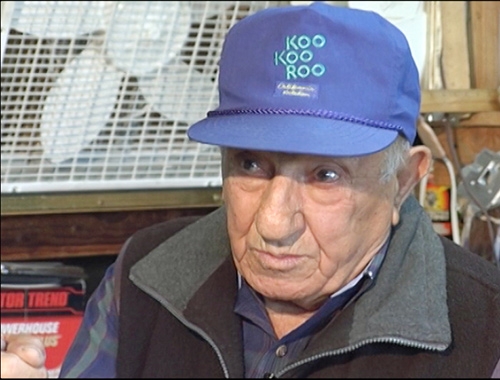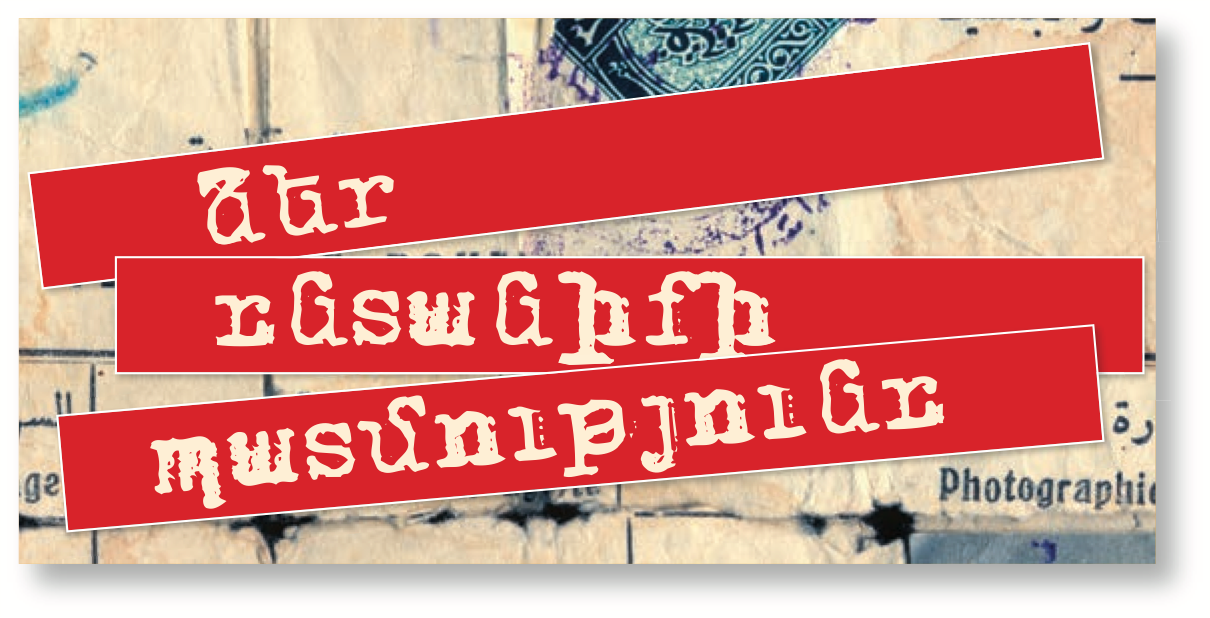 Interview conducted in Glendale (California, USA)
Interview conducted in Glendale (California, USA)
Torgom Pahlevanyan
My family arrived in Armenia before the war. They always asked me, are you a Bolsetsi or an akhpar? I always replied, Bolsetsi. They’d say, yes, you are one of those old ones. The family of my wife Mari Pahlevanyan, repatriated after the war. They were from Chicago.
I was a ‘station boy’. We lived in Yerevan neighborhood where the railway station is. We would always go to the station platform to see the repatriates disembarking and how they were greeted. I saw Marshall Baghramyan once at the station. I recognized him.
They didn’t give posts to the Bolsetstis or the akhpars. I was a master worker in a factory and they wanted to promote me……………I didn’t want the job because I was a craftsman and had no aptitude for meeting project plans.
When I married Mari, we went to Moscow in 1954. My father-in-law had been exiled for six years and we wanted to go to Siberia to see him.
In Moscow, I went to see the prosecutor general. During the war, my father-in-law sent 2,000 pairs of shoes to Armenia from America. His picture was published in the journal Ogonyok. My deceased mother-in-law had kept the photo and I took it to Moscow with me. We talked. The prosecutor general said – my boy (that’s how he talked to me), you will go, see him, and then come back to me.
We went to the last bi station. I had brought some ghavourma (boiled meat) and other food with me that we prepared in Moscow. We were to travel some great distance alongside Lake Baikal by train to get to the place where my father-in-law was exiled. On the tracks I saw a handcar. I called out – hey guys, are you Armenian by any chance? He replied, yes, how did you guess? His being Armenian was written on his face. He said he was from Krasnodar. So we sat in that handcar. An engineer accompanied us.
That engineer said he had been working on the railroad for fifteen years and had been removing the corpses of prisoners from everywhere when laying the new line. There were camps every three or four kilometers until we arrived at Novaya Chounka. The station was just a small hut with a telephone.
We weren’t permitted to see him that night. The next morning, very early, we grabbed everything and went. We also took a guy with a gun. We called out for my father-in-law. We started to open the locks. First there was an iron door, then a wooden door…He came out and yelled. My wife started crying. He told her to go back and work on his case. “Free me from this place. If I stay here I’ll die. My health is gone,” he said.
So, who were the friends from the camps. There was Ado Adoyan, who was appointed the director of the Marxism-Leninism Institute after returning home. There was Aslanyan. Do you know who he is? He was the director of a bread factory, Dro and three others stayed at Aslanyan’s house on the way to Rostov. One day Aslanyan said, “I’ll take you with me, Otherwise the Russians will shoot you.” I answered, “What have I done? Just gave some food to an Armenian.”
My father-in-law was a shoemaker in the camps. I had done work at their house but he didn’t remember me. My wife introduced me as her husband. Three days later we returned to Moscow and I visited the prosecutor general again. He told me that the man would be released in six months or so.
Precisely six months later we received a letter stating that Boghos Haroutyunyan had been freed. A month passed and we received another letter saying, “I am dying here.” So I wrote again to the prosecutor general that Boghos Haroutyunyan was freed but still in the camps. A week later we received a telegram saying, “They let me go. I’m coming home.”
My father-in-law had given his furniture to an official in the central committee. He intervened so that they let us leave for America. But my wife’s younger sister Aghavni ruined it all. She was writing letters to Moscow, Washington, the embassies, saying that her father had fallen ill in Siberia. She requested that he be permitted to return to where he was living.
She had taken fifty thousand rubles to the KGB. My mother-in-law kept the paper. My father-in-law returned and we went to get the money back. They gave it. He took it and gave me ten thousand. “This is for you,” he said. “Go buy a car or whatever you want.” Perhaps it was payback for my taking his daughter to Siberia to see him. Anyway, I went to Ghapan and purchased a Moskvich auto.
That’s how we lived until the day we came to America. Now, we are rotting away here. We lived in New Jersey for twenty years and moved here in 1987. I couldn’t stand the weather there. Please don’t get upset, but let me tell you something. I fallen smack dab in the midst of the cows of cowboys. Our youth is decaying here.
I have started to write. “I learned very late that on foreign shores you are a stranger to yourself, to your children, and to your soil.”
I’ve written in detail how we arrived in France, spent one week there, and later came to America. We arrived legally.
There is so much to write, my hands shake. These three fingers don’t work. They’re like stone. I try to raise my family well and to keep them Armenian. My grandkids really speak Armenian well. I tell them, learn Spanish and Russian. The more languages you know the better. You can work as a translator somewhere and make a living.
Let me say, though, that I can’t break my bonds with Armenia. What’s right is right. Two years ago, I went to Armenia for the fiftieth time. I help our people as best I can. I help my neighbors too. If you mention my name on third street in Butania, they all know me – old man Torgom.
Of course, I would like for my country to be like this one. Are we that lacking? I came here and openly stated that I do not like this country. But I worked and created here.
But I would like to be in my country. Why shouldn’t I be? And let me also say, for example, that my grandchild went to Yerevan. He graduated school here and worked in a Yerevan bank for two years. He’s in Yerevan now. He met a girl there and got engaged. Now he’s telling me to send his car from America and that he’s staying there. My 26-year-old grandson Krikor has fallen in love with Armenia. He also loves Armenia.



















